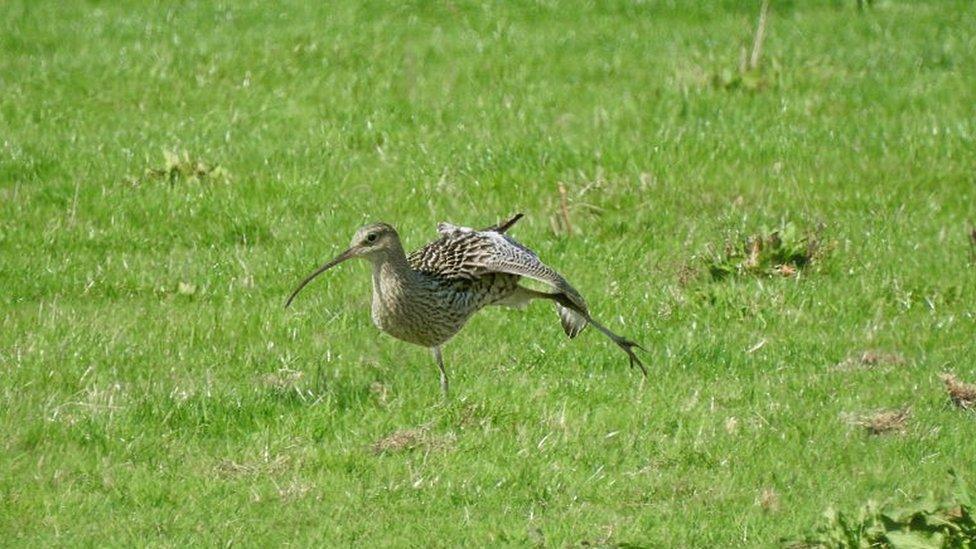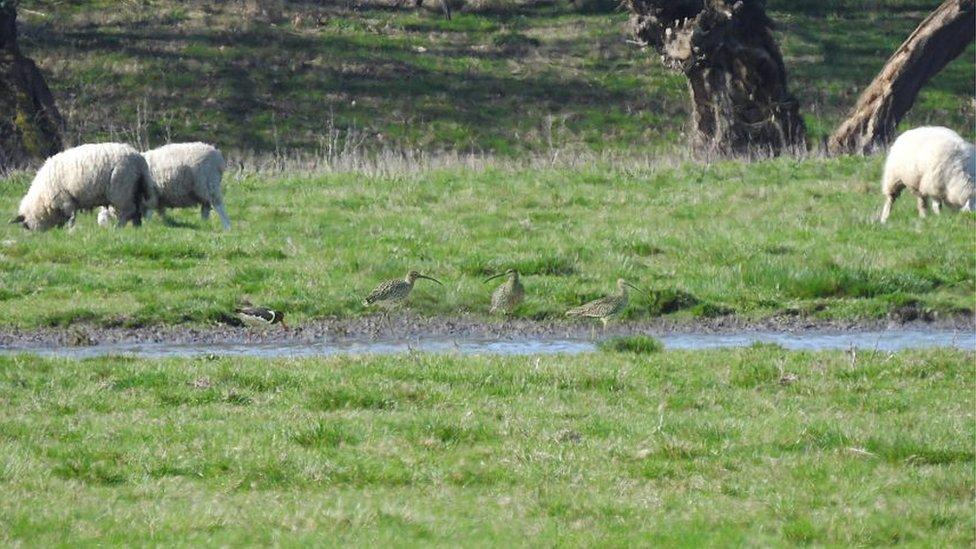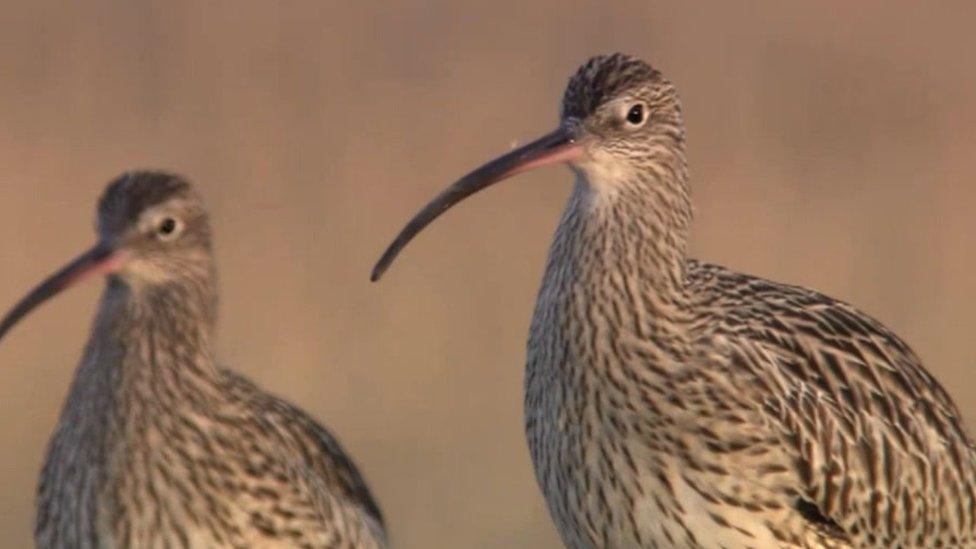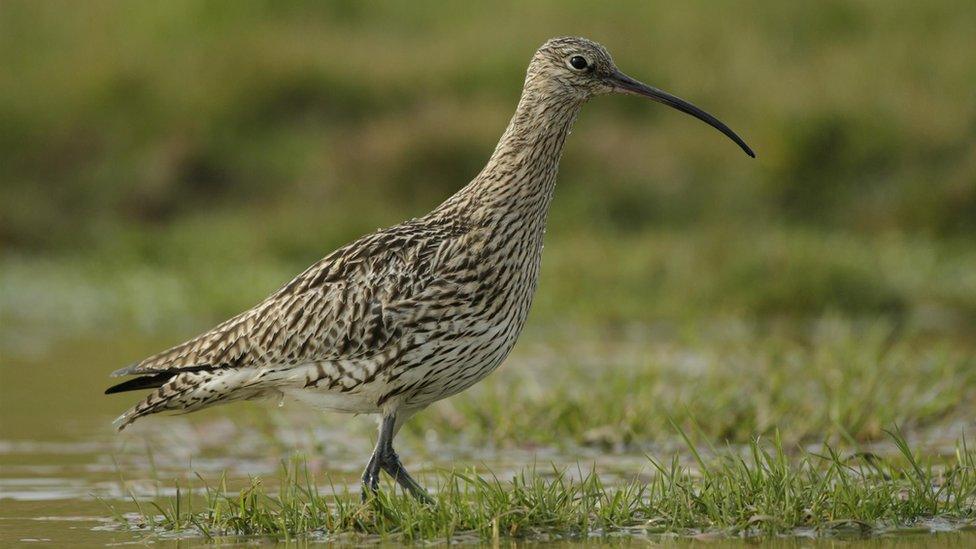Curlew breeding site at Waterstock gets protected status
- Published

The curlew is the UK's largest wading bird and is classed as a "globally threatened" species
A nature reserve found to be a breeding site for an endangered species of bird has been designated as a protected Local Wildlife Site.
Waterstock, near Oxford, is home to a population of curlews but is also an important site for otters, other mammals and some endangered plants.
The flood meadows near the River Thame has been surveyed monthly for the past three years.
In recent weeks 12 curlews have been recorded in the reserve.
Nick Marriner, from the River Thame Conservation Trust, said last year the RSPB estimated there were 10 breeding pairs in the entire Upper Thames area east of Oxford.
He said: "To have the majority of them in this area, highlights how important Waterstock and its flood meadows are both locally and regionally and how vital its wild and undisturbed habitat is.
"The iconic curlew is the UKs largest wading bird species and has one of the most evocative calls of all birds."

The curlew is one of the UK's most rapidly declining breeding bird species, according to the RSPCA
Local Wildlife Sites are special places,, external recognised for having high wildlife value or containing rare or threatened habitats and species of county or national importance.
Pim Young, the county's Local Wildlife Sites project officer, said: "Across Oxfordshire rough grazing marsh and floodplain habitat is a real rarity.
"It plays host to some of our most endangered breeding bird species such as curlew - and it also provides crucial wintering habitat for large numbers of birds."
The curlew is classed as a "globally threatened" species according to the International Union for Conservation of Nature and is on its 'red list'.
According to the RSPB, the curlew is one of the UK's most rapidly declining breeding bird species, with surveys showing a 42% decline between 1995 and 2008.
- Published19 April 2019

- Published4 April 2017
